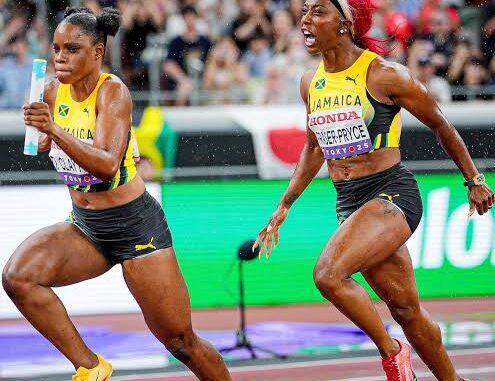
Jamaica has always been a nation synonymous with sprinting excellence. For decades, the green, gold, and black have been a permanent fixture atop medal podiums at global championships, with the country producing some of the fastest men and women the world has ever seen. From the dominance of Merlene Ottey in the 1990s to the golden era of Usain Bolt, Shelly-Ann Fraser-Pryce, and Veronica Campbell-Brown, Jamaica’s reputation as a sprint powerhouse has been cemented. But as time marches on, so does the need to hand over the baton—literally and figuratively—to the next generation of athletes ready to write their own chapter in history.
The 2025 season has been particularly symbolic in this regard. Several of Jamaica’s most beloved athletes are reaching the twilight of their careers. Fraser-Pryce, the “Pocket Rocket,” who has been the heartbeat of Jamaican sprinting for over 15 years, has already hinted at retirement after Tokyo. Her story has been one of perseverance, triumph, and inspiration. Yet even as she bows out, a wave of young talent is rising to ensure that Jamaica’s relay teams and individual sprint events remain among the most feared in the world.
Names like Briana Williams, Ackera Nugent, and Tina Clayton are no longer just promising juniors—they are medal contenders. Williams, in particular, has stepped confidently into the role of team leader, anchoring relays and running sub-11 consistently in the 100m. Nugent has made her mark in the 100m hurdles, adding depth to Jamaica’s dominance beyond the flat sprints. And Tina Clayton, part of Jamaica’s record-breaking World U20 relay teams, is beginning to challenge established stars on the senior stage.
The transition has not been without its challenges. The men’s team, for instance, has faced a rebuilding phase since the retirement of Bolt and Yohan Blake’s gradual decline from his peak years. However, young stars such as Oblique Seville and Bouwahjgie Nkrumie are keeping hope alive. Seville’s fourth-place finish in the Olympic 100m final and Nkrumie’s world junior record show that the talent pipeline remains strong.
What makes this passing of the baton so special is how the veterans have embraced their mentorship roles. Fraser-Pryce, for example, has repeatedly spoken about guiding the next generation, even training alongside Williams to pass on her knowledge. This culture of mentorship ensures that the younger athletes do not just inherit the pressure to perform but also the discipline, humility, and pride that come with representing Jamaica on the global stage.
Fans are optimistic that Jamaica’s legacy will remain intact. The future promises fierce rivalries with Team USA, Great Britain, and other rising nations, but Jamaica thrives under pressure. The baton is not just a symbol of transition—it is a promise that the island’s sprinting tradition will endure.
As the curtain slowly closes on one golden era, a new one is dawning. Jamaica’s next generation is ready, and with the nation’s passionate support behind them, they are poised to keep the flag flying high. The baton has been passed, and the race continues.
Be the first to comment